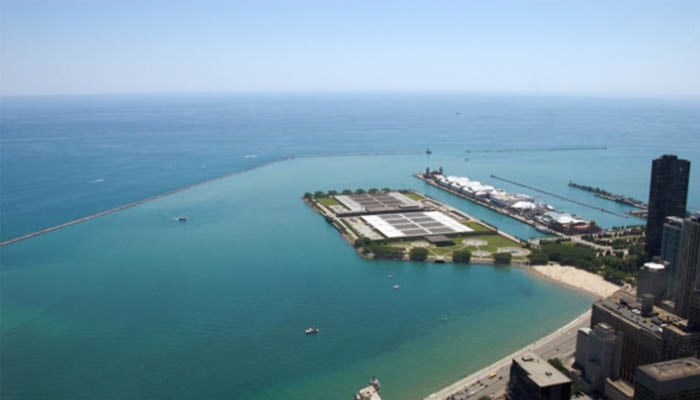
ISLAMABAD: Desalination of seawater offers enormous opportunities for Pakistan to meet its growing agricultural and civil water requirements in the country, a top government body has proposed.
Pakistan is feared to go water scarce in the next one decade or do.
A high-level consultative meeting held at the Ministry of Planning and Development under the chairmanship of Planning Secretary Shoaib Ahmed Siddiqi has proposed numbers of actions to use the seawater as an alternative source to deal with water scarcity.
The meeting was attended by experts and top officials from UNESCO, National Institute of Biotechnology Genetic Engineering (NIBGE), Pakistan Agricultural Research Council (PARC), Pakistan Council of Research in Water Resources (PCRWR), Pakistan Council of Scientific Industrial Research (PCSIR), Governments of Punjab and Sindh, Metropolitan Corporation Islamabad, CDA, WASA Rawalpindi, Defence Housing Authority, Karachi, Gwadar Development Authority.
It proposed recycling and treatment of drinking, industrial and sewerage water in cities and urban areas.
In order to benefit from international best practices, a representative from world’s leading firms was also invited. Accordingly, representatives of two US firms, three Chinese consulting organisations and one Middle Eastern and European firms participated. Jia Li from Yellow River Engineering of China also made a presentation. Renowned desalination expert Prof Mark Tester from King Abdullah University, KSA and Dr Shahbaz Khan, UNESCO Cluster Office Director, Jakarta made presentations online.
The high-level meeting discussed five major subjects including Seawater desalination: IWRM paradigm, sewerage water treatment, drinking water treatment, recycling of municipal wastewater and treatment of industrial wastewater.
The meeting also made a number of unanimous solutions which included the adoption of an internationally recognised framework of Integrated Water Resources Management (IWRM) which is in line with the objectives set for UN Decade for Action-Water for Sustainable Development (2018-28).
It was emphasised that solar desalination was highly suitable for Keti Bandar, Thatta and Badin in Sindh and Ormara, Pasni and Jivani in Balochistan.
The meeting identified that higher costs were the major hindrance in the adoption of desalination technologies. In a bid to reduce the cost of installation as well as that of OM, local manufacturing would be promoted with the exception of only two items i.e. membranes and instruments.
As per the recommendations of the committee, saline aquifers make a reasonable part of groundwater resources. It was emphasised that feasible and effective technologies like magnetic treatment and partial desalination may be promoted.
In the coastal belt, pre-filtration through slow and filters needs to be adopted for increasing life of treatment plants without compromising on the quality of output. In addition, dug wells may also be used near coastline where subsurface hydrogeology allows.
Keeping in view the deteriorating water quality in Islamabad, it was urged that CADD, CDA and MCI may adopt and promote bio-remediation measures and all water streams may be linked with the network(s) of this environment friendly technology.
Public sector investments need to be significantly increased by federal and provincial governments for sewage treatment and protection of freshwater bodies.
It was accentuated that Pakistan National Standards for Drinking Water Quality (2008) need to be strictly enforced in letter and spirit. Regarding industrial effluents, provisions made under NEQS (2010) should be followed.
Enforcement of Canal and Drainage Act of 1873 may be ensured to prevent discharge of effluents and protect freshwater bodies.
New human settlements i.e. Bahria Town, DHAs should be made responsible for the appropriate treatment of wastewater before disposal. Arrangements may also be made for wastewater treatment in the case of high risers.
It was also discussed earlier in an international conference on Seawater Desalination that water scarcity was affected and likely to further reduce and more vulnerable on supply side due to Indian, Afghan and Chinese water use upstream. Water scarcity would increase due to the enhanced demand owing to urbanisation, industrial development, population increase, the changes in life patterns and food consumption patterns, and increased GDP as well as irrigation requirements due to global warming.
Existing water supply in the country covers about 85-90% of the population, however, neither the quantity is adequate nor the quality is safe. Drinking water’s main resource is groundwater.
Groundwater aquifers, due to the unsustainable withdrawal of water have dangerously declined in Quetta and Lahore urban centres, whereas out of 43 canal commands, 37 canal commands have also shown a drastic decrease in groundwater level which is an alarming position.
Waterborne diseases include conventional diseases like malaria and typhoid, but now also hepatitis. Districts of Gujranwala and Bahawalnagar have badly been impacted due to hepatitis.
Seawater treatment technology is a proven technology and is being implemented successfully in 27 countries. Sewerage treatment is essential for protecting freshwater bodies and protecting groundwater aquifer from pathogens and other heavy metals. Industrial effluents treatment is the responsibility of industries however, it has been observed that they are not following their responsibilities and in areas of Punjab such as Kala Shah Kaku, they are releasing hazardous wastewater into dug wells.
Rivers of Ravi, Sutlej, Malir and Liari are now filled with sewerage whereas Islamabad freshwater streams are now causing health hazards and also have a stagnant odor that needs immediate attention.
Greater Karachi area has damaged the aqua life and water quality in coastal areas and this is also happening in Gwadar.
It suggested that electronic media may play their role to create awareness by dedicating prime time to water related challenges as their Corporate Social Responsibility.

 6
6





